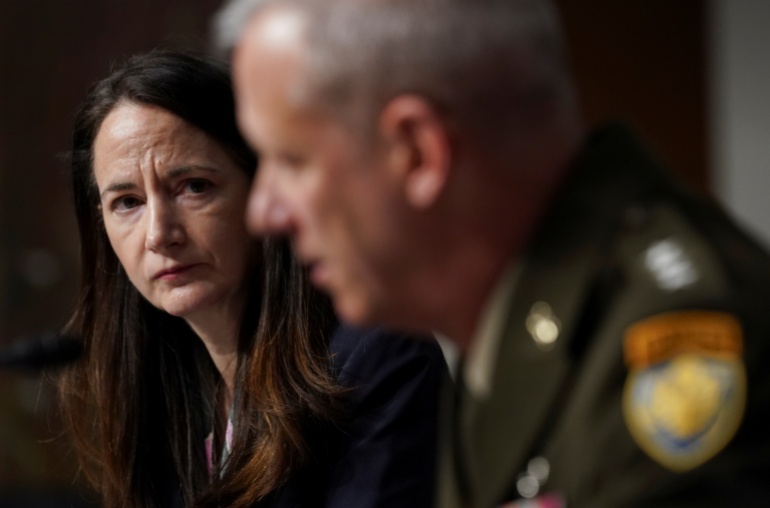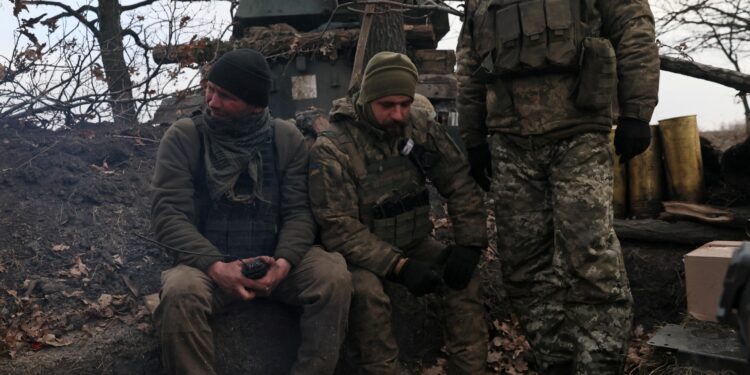Director of National Intelligence Avril Haines said Russian precision munitions appeared to be running out quickly.
The The pace of fighting in Ukraine has slowed It is set to continue for the next several months and the US sees no evidence that Ukraine’s will to resist Russia has waned, despite Moscow’s stance. Destructive attacks on the Ukrainian power gridsaid a senior US intelligence official.
Avril Haines, the director of national intelligence in the Biden administration, said on Saturday that she believed Russian President Vladimir Putin was surprised his military had not achieved more in its war on Ukraine.
“We’re seeing a really low tempo kind of conflict … and we expect that’s probably what we’ll see in the coming months,” Haines told the annual Reagan National Defense Forum in California.
She added that the Ukrainian and Russian militaries would try to replenish and resupply to prepare for counterattacks after the winter, but there was a question about whether the Kremlin could achieve this goal.
“We actually have a fair amount of skepticism about whether or not the Russians would actually be willing to do that. I think the Ukrainians are more optimistic in that time frame.”
Putin has started it He understands the challenges his army faces With, Haines said.
I think he’s becoming more familiar with the challenges the military faces in Russia. But it’s still not clear to us that he has a complete picture at this point of how challenging they are… We see shortages of ammunition, of morale, supply issues, logistics, a whole series of concerns that they face,” he said.
The Atlantic Council, a US think tank, recently said that winter conditions in Ukraine may favor Russian defensive tactics and allow the Russians to bring newly mustered forces into positions they control east of the Dnipro River and near Crimea in the south.
The council said: “It may be Russia’s tactic to impose a state of stalemate during the winter from more established positions with the intent to start rotating the newly trained and equipped mobilization forces to the front as spring approaches.”

Putin’s political goals in Ukraine did not appear to have changed, Haines said, but U.S. intelligence analysts believed that Putin might be willing to scale back his military goals in the near term “on a temporary basis with the idea that he might then come back on this issue at a later time.”
It also said that Russia appeared to be depleting its military stocks “very quickly”.
“That’s why you effectively see them going to other countries to try and get ammunition… and we’ve indicated that in many respects their precision ammunition is running out faster,” she said.
“It is really unusual, and our sense is that they are not able to produce as much as they spend domestically at this point.”
Asked about the effects of the Russian attacks on Ukraine’s power grid and other civilian infrastructure, Haines said Moscow’s goal was in part Undermining the will of the Ukrainians to resistadding, “I think we don’t see any evidence of undermining that right now at this point.”
Russia was also looking to influence Ukraine’s ability to pursue the conflict and Kyiv’s economy was hit hard.
Ukraine’s economy is suffering badly. It was devastating.”
US Deputy Secretary of State for Political Affairs Victoria Nuland, who is in Kyiv on Saturday, met with President Volodymyr Zelensky and other senior Ukrainian officials where she said Putin was not serious about peace talks.
“Obviously diplomacy is everyone’s goal, but you have to have a willing partner,” she told reporters.
“It is very clear, whether it is the energy attacks, or the rhetoric from the Kremlin and the general attitude, that Putin is not sincere or ready for this,” she said.
On Thursday, Biden said he was willing to talk to Putin if the Russian leader was interested in ending the war. But the idea quickly died down when the Kremlin said the West should recognize Moscow’s declared annexation of four Ukrainian regions.

























